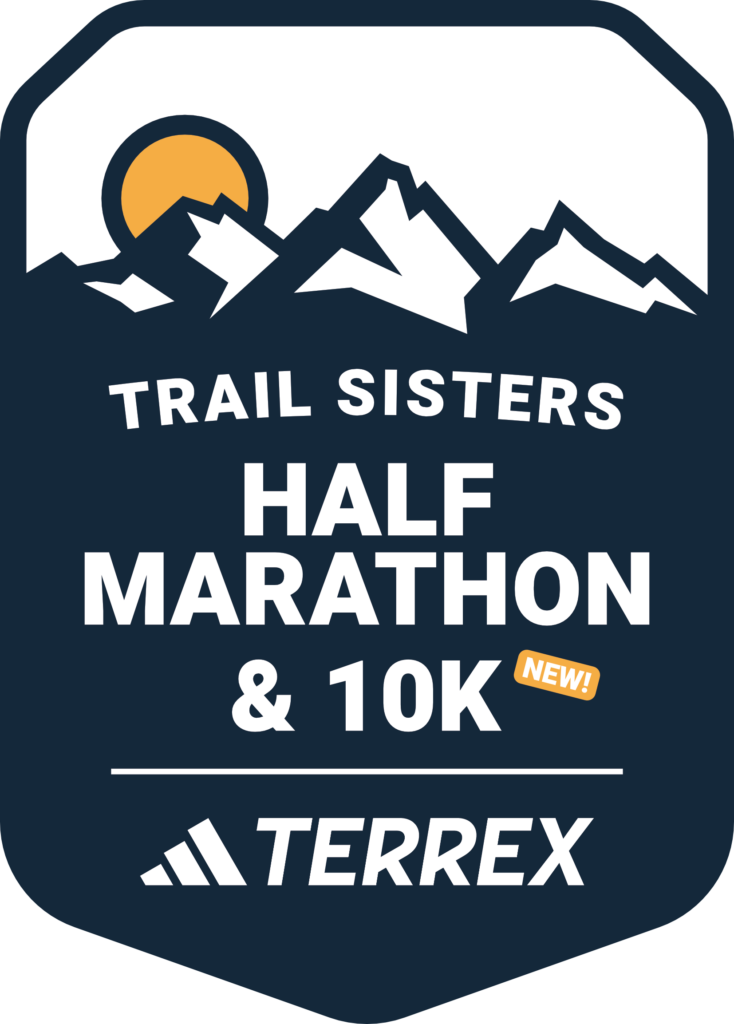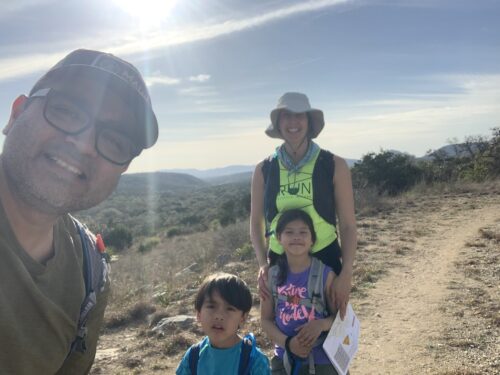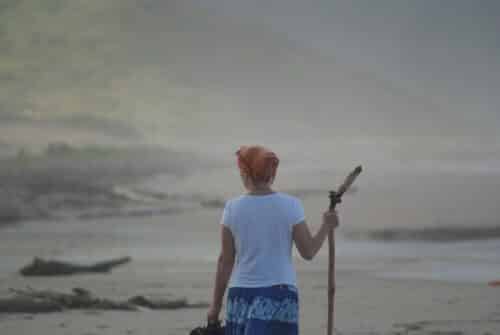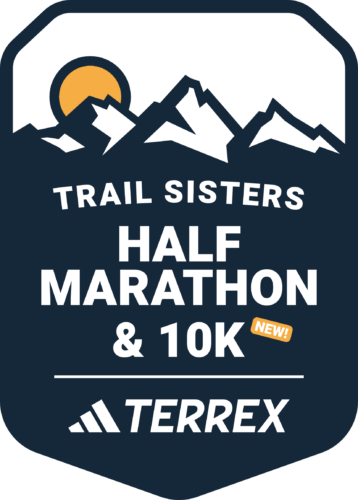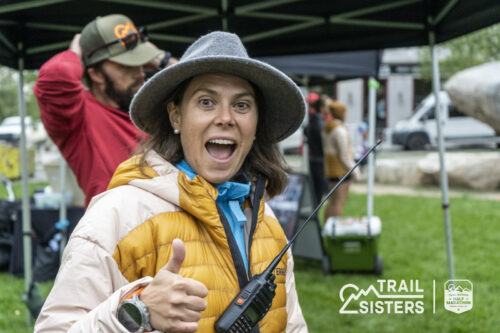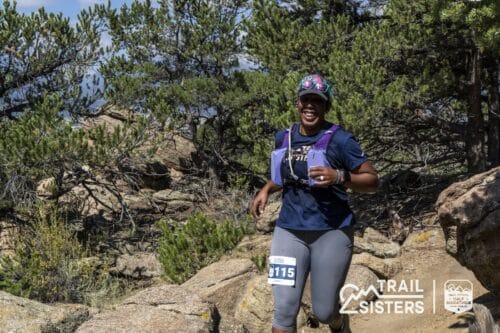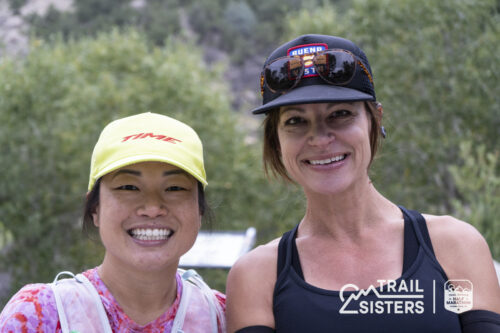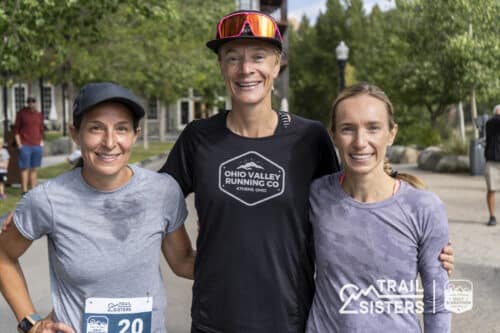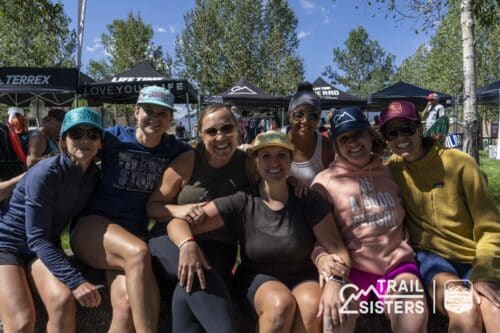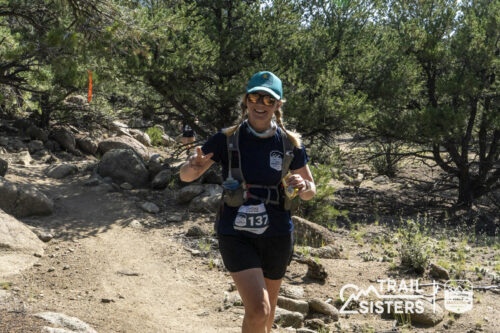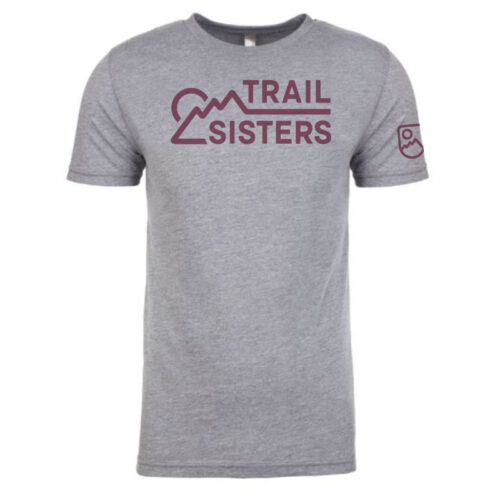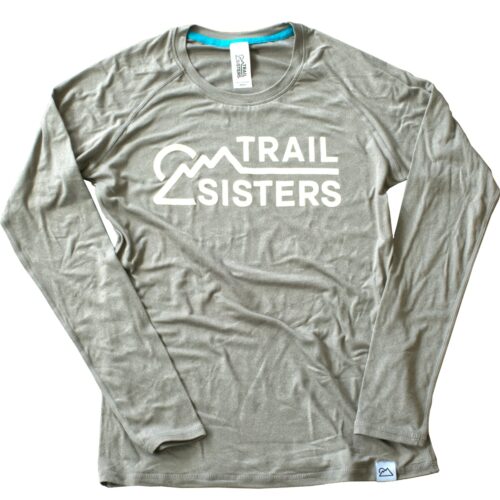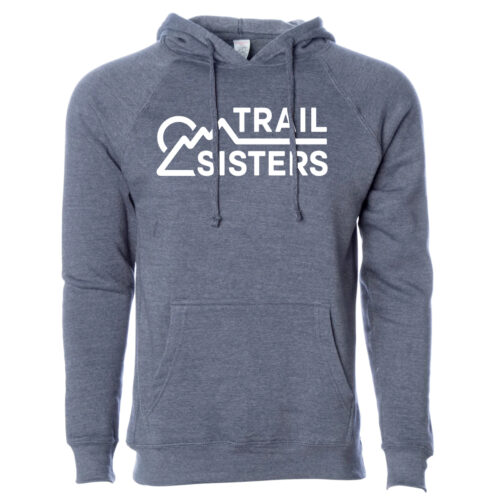Main Menu
Applying Lessons from Running to Cope with Anxiety and Uncertainty During the Coronavirus Pandemic

Christina Scharmer is a doctoral candidate in clinical psychology at the University at Albany, State University of New York where she studies links between anxiety, eating, and exercise. She is specifically interested in examining factors that differentiate between adaptive and maladaptive eating and exercise behaviors. As part of her training, Christina also works under the supervision of licensed psychologists to provide cognitive-behavioral therapy to clients with anxiety, depressive, and eating disorders. When she is not conducting research or working with clients, Christina spends time outside experiencing the psychological benefits of exercise and nature first-hand. She currently loves running around local parks alone and is excited to continue exploring new places and racing long distances with friends again soon!
Share This Article!
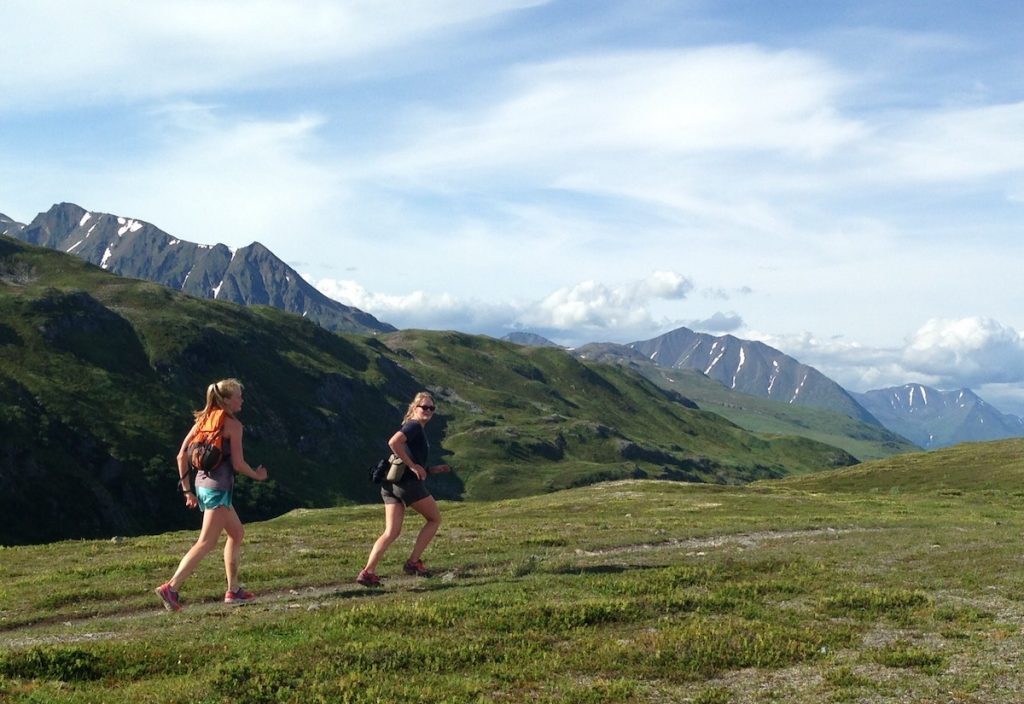
So many things are uncertain. The severity and duration of the coronavirus public health crisis remains unknown and it is unclear how each of our lives will be affected. At this point, we’re most certain that things will get worse before they get better. There is even uncertainty within the world of running. Upcoming races have been canceled and group workouts banned. We are asked to run alone, close to home. And there is no certain end in sight. Many of us are disappointed and discouraged. Our plans have been ruined.
In the face of constantly changing circumstances, I, like so many of you, am encountering different challenges than I wanted and anticipated. I was excited to explore new trails, race new distances and meet new people this spring; instead, I face the challenge of staying calm and grounded at home alone. Although I understand that the life disruptions I experience as a graduate student pale in comparison to those of others in this country and the world, I also understand the importance of acknowledging, accepting and coping with my changing and uncertain life. I am fortunate to have several years of training in clinical psychology under my belt, providing me with a full tool kit of skills and strategies to cope with anxiety, uncertainty, fear, and disappointment. However, during this time, I find myself finding even more clues about how best to cope by considering my experience as a runner. Although much greater in magnitude, the challenges I encounter in the world of the coronavirus pandemic aren’t much different than those I have faced throughout my running career. My unease in the face of constantly changing world circumstances resembles the discomfort and pre-race ‘jitters’ I experience as a race approaches. The unforeseen challenges I encounter adapting to a world of social distancing parallel those that I encounter in the midst of a difficult race. Thus, these challenges are not as unfamiliar and daunting as I originally thought, and, I, like so many others, have unknowingly practiced coping with these circumstances.
I am excited to share more about how my running experience, through the lens of my training in psychology, is helping to guide me in navigating the difficulties that accompany the world in the midst of a global pandemic. My hope is that other runners can appreciate this perspective and that it provides confidence and direction during these uncertain and difficult times.
Borrowing from experience with ‘pre-race jitters’ to manage anxiety in the face of uncertainty
I’m certain I am not alone in my experience of pre-race jitters. Like many of you, for hours, and sometimes days, before a race I feel on edge. The fluttering in my stomach is accompanied by a constant loop of the thoughts in my head reminding of all the uncertainties accompanying my upcoming run. I automatically obsess about the forecast, projected headwind, and other runners. I constantly catch myself perseverating on the possibilities that I will trip over a root or miss a turn. On top of that, I am uncertain about how my body will feel. Will that nagging pain in calf return halfway through the race? How will my legs feel? I can’t know how the race will go and how it will end. So much of my experience and my performance are out of my control.
The anticipation of uncertainty accompanies me all the way to the start of the race and manifests in many behaviors that may be familiar to other runners. For days before the race I feel on edge, sometimes losing my appetite and struggling to get the rest I know I need. On the morning of the race I find myself running circles around the start line trying to ‘warm-up’, frantically darting to the porta-potty two minutes before the gun start and chewing my fingernails for the thirty seconds I somehow still end up standing awaiting the starting signal.
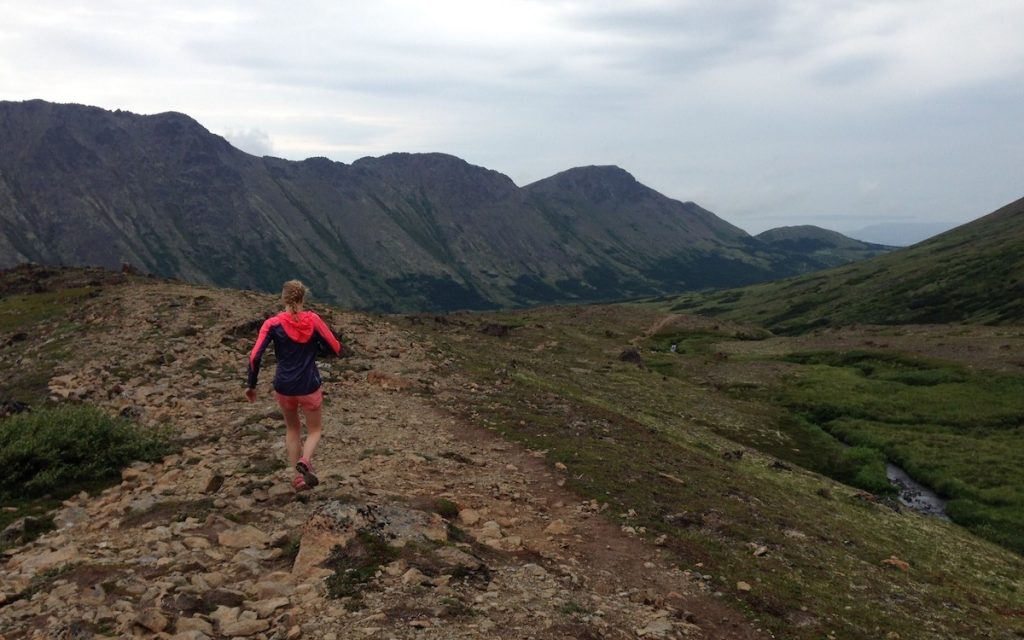
Fortunately, after reading no fewer than 9000 articles from running magazines and finally listening to more experienced runners and coaches, I have learned to manage my anxiety about race uncertainty through several strategies. The underlying processes of these strategies resemble interventions from cognitive-behavioral therapy (CBT) that I use with my clients and can also guide me in managing anxiety and uncertainty in the current global climate.
1. Trusting training to feel confidently prepared.
It is easy for me to question if I logged sufficient miles, did enough speedwork and rested appropriately. Although there are always ways in which I could have better trained and recovered for each race, questioning my preparedness has never helped me. Instead, this doubt further perpetuates the cycle of anxiety. However, altering these thoughts, in CBT we call this cognitive restructuring, to focus on the positive components of my preparation enables me to approach each race with confidence. This perspective is more beneficial and diminishes my pre-race jitters.
The same is true for approaching the uncertainty about the next few weeks. Although I could have better prepared to encounter the obstacles in numerous ways, focusing on these shortfalls will only heighten my anxiety. Shifting my focus to emphasize the ways in which I am prepared, specifically through my experience successfully navigating the challenges of trail running, alters my perspective and allows me to operate in this world.
2. Develop a routine – stick with your rituals.
I benefit from sticking with an established pre-race routine on the morning of a race. I set out my outfit the night before, wake up early enough to have a cup of coffee and reliably eat my tried and true pre-race breakfast. As I arrive at the start line, I can nearly always complete the same warm-up exercises and listen to familiar music before the race begins. Although I am unable to control most components of the race, this pre-race routine is one thing that I can. Uniformly adhering to this routine before each race provides consistency and puts me at ease in unpredictable circumstances.
Similarly, establishing and adhering to a routine during these rapidly changing times provides me with a sense of predictability and control over small aspects of my life. Waking up at the same time each day, drinking coffee while checking my email, breaking for lunchtime yoga and heading outdoors each afternoon provide structure and predictability to my days. I may not be able to predict upcoming events outside of my insular existence, but I feel more comfortable knowing that I can anticipate how each day will look.
3. Get started.
Sometimes my anxiety and anticipation before a race can feel almost paralyzing. I feel stiff and tight while waiting for the start gun and occasionally question my ability to coordinate my limbs in the running motion. The first few steps can feel foreign and tight, but once I get moving my experience is transformed. In contrast to my experience minutes before, I feel at ease and relaxed as my feet carry me. The butterflies escape my stomach and my one-track mind expands. The shift in my experience is partially attributable to the movement (running) itself, which has numerous psychological benefits. However, the understanding that I am making progress towards the end goal also provides me with relief.
Similarly, as I settle into the ‘new normal’ that is my life during the coronavirus pandemic, consciously taking literal and metaphorical steps forward eases my mind. Initiating projects I have neglected around my apartment and retuning to forgotten hobbies provides me with a sense of purpose and allows my anxiety about inaction to subside. Additionally, although my motivation to run initially decreased in the face of race cancellations and guidance to stay close to home, moving each day is important for new reasons. Instead of steering me towards attaining the novel experiences of attaining new goals and seeing new places, these days running each day is the goal itself, providing a reliable beat to underscore the erratic events that are outside of my control.
Applying lessons learned from the trail to approach persevere through the upcoming period of social distancing, isolation, and economic uncertainty.
My adverse experiences during difficult races are probably familiar to others who frequently explore and race the trails. For me, each run includes periods of elation accompanied by periods of hardship. At moments I feel strong, confident and invincible, but then minutes later I am discouraged and uncertain about my strength to make it to the finish. I frequently find myself off course after missing a turn and losing my way. I trip and fall, resulting in scratches and scrapes that cover my knees and elbows. I experience exhaustion and dream of taking a nap on the trail instead of ascending the upcoming hill. And I beat myself up when I’m not meeting my expectations, sometimes nearly calling it quits instead of failing to meet my goals.
Although unpleasant, encountering and overcoming these challenges has helped me learn to adapt and cope with difficulties on the trail. And again, when anticipating the obstacles that will assuredly accompany the upcoming weeks and months, I feel appreciative of the ways that these lessons evidence my ability to respond to difficult circumstances.
4. Breathe and smile.
It is usually apparent when I am having a tough time. My breath is heavy, my cheeks flushed, and my face distorted in an expression of pain. These experiences make stumbling up a tough climb or watching the runner in front of me disappear from sight exponentially more difficult. The physiological manifestations of my distress trigger neurobiological circuits that further contribute to my agony. But thankfully, simple alterations – breathing deeply, smiling – can have the opposite effect. Deep ‘belly breaths’ allow oxygen to fully circulate throughout my brain and body and smiling counteracts the negative effects of a frown. Although I commonly practice these skills with my clients in therapy, implementing them during runs and races has required effort and practice. However, I can always notice the benefits – I run more relaxed with greater ease. I am still tired, but the experience is less miserable.
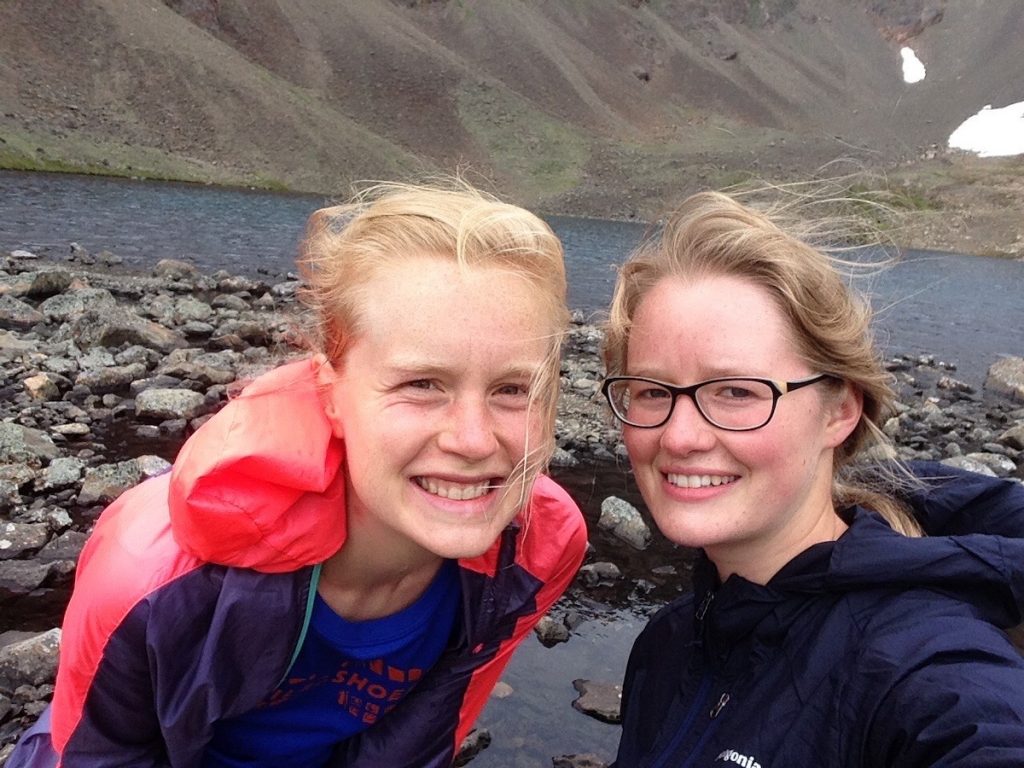
When facing the inevitable distress and difficulty of the upcoming weeks, I will rely on these simple behaviors, breathing and smiling. Focusing on my breath instead of hyperventilating while perseverating on the economic and health consequences of a pandemic can provide necessary relief. Smiling in the face of fear and sadness can help me momentarily overcome these emotions when they do not serve me. Fortunately, in the time of social distancing, I will feel less goofy smiling to myself or counting aloud on solo runs or alone at home.
5. Shift focus.
When my runs and races are not going as planned I commonly think about the negatives. I focus on the pain in my legs, my disappointing time, and the miles I have to complete before the race will finally be over. I am disconnected from the facts of my present experience, instead judging my physical capabilities and focusing on my anticipated distress. Although I recognize the importance of listening to my body and adjusting my running accordingly, overemphasizing my pain can make my runs unbearable. With practice, I have begun to develop ‘mindfulness’ skills, which aim to increase non-judgmental present moment awareness. I focus on the sound of my feet on the trail, the cool of the breeze on my skin, and the view from the trail without critiquing my cadence, judging my speed or comparing the sights to those of previous runs. This attentional shift may not impact my end performance, but it decreases the misery I have to endure.
I already notice myself perseverating on the negative ways in which the current global circumstances are impacting my life and the lives of others. Awareness of negative world events is important to an extent, but constant focus can lead to overwhelming distress. As in running, shifting focus to the objective facts of the present moment is grounding. Instead of focusing on the races that I will miss, the trails I won’t see, the people I can’t run with, and the more severe global negative health and economic consequences, connecting to the present moment allows me to tolerate these circumstances, keep running, and live my life – albeit a weird one.
6. Adjust goals.
So many things can go wrong in a run, and shifting goals to fit the circumstances helps motivate me to keep going. Although I am not always excited about adapting expectations to fit my slower than expected pace or unplanned deviation from the course, this process of redefining my aims is useful. Instead of shooting for a PR, I’m shooting to finish. Rather than completing my longest run, today I’ll focus on recovering. Even when these expectations aren’t what I have planned, having clear and attainable goals provides me with a plan and a sense of accomplishment.
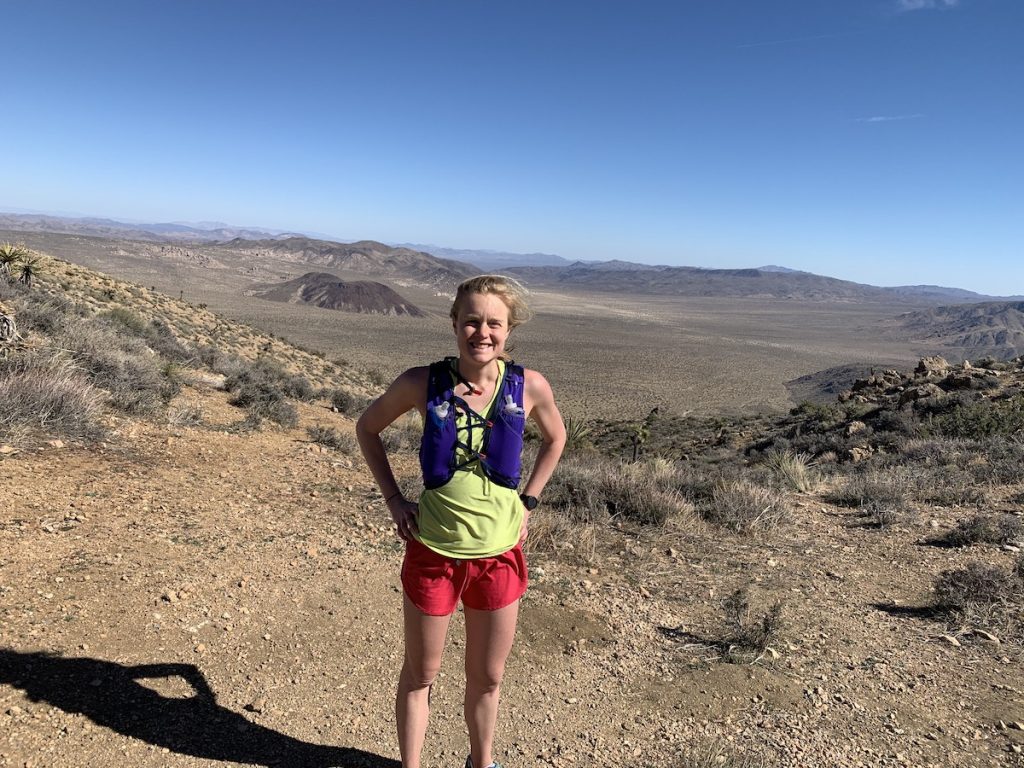
These days my goals have shifted, not because of poor performance or getting lost, but for other reasons that are outside of my control. In running, I am no longer building up to races and runs at elevation. Instead, I have had to re-adjust my aims, focusing instead on the fun, stability, and consistency that running provides. In the absence of extrinsic motivators to complete difficult workouts and runs each day, I am instead tapping into the intrinsic rewards of running itself. Getting out the door to run or walk each day is an achievement and taking a few moments to appreciate my ability to keep moving and experiencing joy in running is another triumph. I am similarly adjusting goals for other domains of my life. Like many others, my social life and work are majorly disrupted. Instead of working towards attaining new life experiences in a new and interesting place, I am focusing on cultivating existing relationships in alternative forms. I am similarly shifting priorities and setting new academic and professional goals.
7. Keep going
And finally, despite the anxiety about racing and the obstacles I encounter, I always have to continue running (or walking). Sometimes the only thing dragging me the last few miles is the knowledge that quitting is not going to get me to the hot shower or meal waiting for me at home. I can adjust my pace, maybe walk, but I can’t stop. While we are deep in this time of crisis, I am confident that I am not the only one continuing to move forward. Political leaders and health experts emphasize that we will eventually get through this difficult time. Although I can only describe my personal experience, I am confident that many others have learned the lessons I have illustrated and honed the skills that I have outlined. As runners, we have the endurance and persistence to make it through. For me, this means persisting with running and working and living – adjusting my pace, but nevertheless sustaining forward motion.
*Interested in helping with Christina’s research examining how runners are coping with uncertainty during the COVID-19 public health emergency? Consider participating in her study consisting of an online questionnaire lasting approximately 30 minutes. Participation in this study is completely voluntary and, to thank you for your time, you will also have the opportunity to enter to win a $20 amazon.com e-gift card.
If you are interested in participating please follow the link to begin the survey. Thank you!
Questions? Contact Christina Scharmer [email protected]. The study is being conducted by a graduate student at the University at Albany SUNY, under the supervision of Professor Drew Anderson [email protected]
About the Author

Christina Scharmer is a doctoral candidate in clinical psychology at the University at Albany, State University of New York where she studies links between anxiety, eating, and exercise. She is specifically interested in examining factors that differentiate between adaptive and maladaptive eating and exercise behaviors. As part of her training, Christina also works under the supervision of licensed psychologists to provide cognitive-behavioral therapy to clients with anxiety, depressive, and eating disorders. When she is not conducting research or working with clients, Christina spends time outside experiencing the psychological benefits of exercise and nature first-hand. She currently loves running around local parks alone and is excited to continue exploring new places and racing long distances with friends again soon!
Share This Article!

